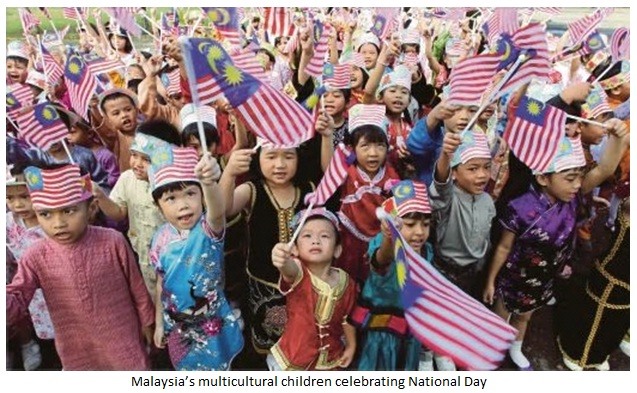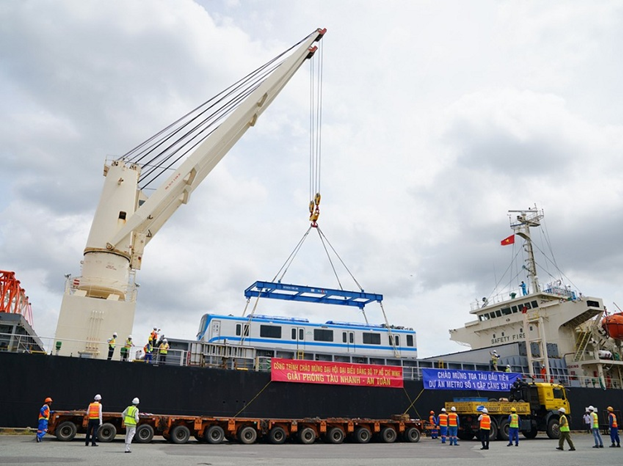 Life & Style
Life & Style

Today, August 31, 2017, marks the sixtieth anniversary of Malaysia’s National Day. On this day in 1957, our first Prime Minister, Tunku Abdul Rahman Putra Al-Haj, declared independence by shouting “Merdeka” seven times at the Merdeka Stadium in Kuala Lumpur. The word has become a rallying cry for Malaysians today as it unites all people from different cultures, ethnicities, religions and economic background.
 |
| Malaysia’s multicultural children celebrating the National Day.— Photo courtesy of the Embassy of Malaysia |
To mark Malaysia’s National Day on August 31, Việt Nam News presents an article written by the Ambassador of Malaysia to Việt Nam Zamruni Khalid.
Malaysia marks 60 years of togetherness
Today, August 31, 2017, marks the sixtieth anniversary of Malaysia’s National Day. On this day in 1957, our first Prime Minister, Tunku Abdul Rahman Putra Al-Haj, declared independence by shouting “Merdeka” seven times at the Merdeka Stadium in Kuala Lumpur. The word has become a rallying cry for Malaysians today as it unites all people from different cultures, ethnicities, religions and economic background.
Malaysia’s 60th National Day theme, ‘Negaraku, SehatiSejiwa’ (My Country, One Heart One Soul) reflects our continuous effort to empower national integration. The theme is based on the unity and solidarity of all Malaysians. The theme is aimed at inculcating the spirit of patriotism, including for Malaysians abroad. It also provides a platform for Malaysians to remember the journey hat has led the country to success.
From humble beginnings, Malaysia has grown tremendously over the past 60 years. In fact, when it achieved independence in 1957, not many people gave it much hope of standing as a nation, given the diversity of its population. Malaysia’s combustible ethnic make-up did explode in a race riot in 1969. However, with the foresight of its leaders at the time, Malaysia came out with policies to remedy the situation. The policies were aimed at instilling national unity and harmony among its multi-racial population, re-structuring society by eliminating identification of race by economic function and geographical location, and eradicating poverty as well as ensuring fairer distribution of wealth.
The results were remarkable. Malaysia reduced the economic gap among the various ethnic groups through industrialisation and active participation in globalisation. The country expanded its GDP per capita from US$357 in 1970 to more than US$9,500 in 2015. At the same time, a period of rapid economic growth and redistribution of wealth has almost eradicated poverty. It was reduced from 49 per cent in 1970 to about one per cent in 2015. Furthermore, unemployment fell from 8 per cent in 1970 to an average of 3.1 per cent in 2015 as a result of increased job opportunities.
These successes were not easy. They required tremendous efforts, hard work and visionary planning. One of the welcome outcomes of rising living standards and a more equitable sharing of wealth was the upsurge in the sense of national identity, pride and confidence that did not exist before. This has contributed to an harmonious and peaceful living environment in which ethnic groups intermingle through mutual understanding and tolerance.
In the international arena, Malaysia has an independent, principled and pragmatic foreign policy founded on the values of peace, humanity, justice and equality. The thrust of its foreign policy has been to safeguard Malaysia’s sovereignty and national interests as well as to contribute towards a just and equitable community of nations.
Being one of the founding members of ASEAN, the regional association remains the cornerstone of Malaysia’s foreign policy. The establishment of the ASEAN Community in 2015 has further elevated Malaysia’s approach and engagement at the regional level.
On Malaysia-Việt Nam relations, both countries have a long-standing friendship with excellent cooperation in many areas since the establishment of diplomatic relations on March 30, 1973. Our relations have been further strengthened and elevated into a more strategic level, especially after the signing of the Strategic Partnership Agreement in 2015. Malaysia and Việt Nam have also recently agreed on the Plan of Action (POA) under the Strategic Framework for the period of 2017 to 2019. Through this POA, both countries will coordinate the implementation of various activities and initiatives as stipulated in the Agreement.
From the economic point of view, our relations continue to intensify, with trade stood at US$10.3 billion last year, an increase of over 10 per cent from the previous year. As of May 2017, the trade figure stood at $4.6 billion, an increase of 22.6 per cent from the corresponding period in 2016. With this momentum, the target of $15 billion bilateral trade by 2020 is well within our reach. Over the years, Việt Nam has emerged as the fourth largest trading partner of Malaysia within ASEAN and the twelfth largest in the world. At the same time, Malaysia has also emerged as the seventh largest FDI contributor to Việt Nam with a total registered capital of $12.3 billion in 2016.
The people-to-people relations between the two countries are also very encouraging. More and more people from the two countries are visiting each other. This is evident with the increase in air connectivity between Malaysia and Việt Nam.
In 2018, our two countries will celebrate the 45th anniversary of the establishment of diplomatic relations. This is a testimony of our strong relations. We will be organising many political, economic and cultural events to celebrate this important milestone. I would like to take this opportunity to wish all Malaysians and friends of Malaysia in Việt Nam “Happy 60th National Day”. — VNS




